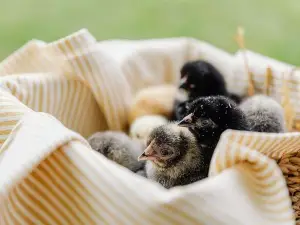
Losing a baby bird is a heartbreaking experience, but knowing why your baby bird died can prevent your next baby bird from dying. If you’ve recently lost a baby bird, and want to know why this happened, then this article is for you
Keeping a baby bird alive can be difficult, they can die because of an incorrect temperature in the environment, humidity, and even malnutrition
Why did my baby bird die?
Baby birds are very fragile and delicate creatures, these animals can be killed by almost anything. If your baby bird died in your care here are the possible reasons why this happened:
Toxins:
Toxins can negatively affect birds but they are even harsher on baby birds.
Toxins in your home, that you likely don’t see as toxins, like fumes from nonstick pans, scented candles, bug sprays, perfumes, and commercial cleaning products, can kill baby birds very quickly.
Diet:
Because baby birds have a digestive system that cannot process most foods (they don’t eat what older birds eat) feeding them adult bird foods can cause them to develop malnutrition because their bodies aren’t able to digest these foods.
They also need the right balance of nutrients in order to survive. If they don’t eat as they should, they can easily fall ill and die.
Feeding issues:
Hand-feeding baby birds is common but there are many ways that hand-feeding can go wrong. If the bird aspirated while feeding, without you knowing it, then it can develop aspiration pneumonia and die
Food that is too cold can cause the bird to chill and die, or, it can slow down the gastrointestinal tract functioning of the bird and this can be fatal.
If the formula that you feed to your baby bird hasn’t been mixed well, this can also cause the bird to die.
Fluctuation in temperature:
Humans and adult birds can maintain their body heat in high or low temperatures but baby birds cannot.
Baby birds do not have wings that keep them warm. Cold temperatures can cause the birds to develop chills and this can cause the birds to die quite quickly. Baby birds can also overheat and die
Illness:
Baby birds are more susceptible to disease and can die from the disease much easier because their immune system is less developed, they are at risk all the time.
A minor disease, that you likely won’t even notice in an adult bird, can kill your baby birds.
If you have both adult and baby birds, and the adult is sick, then the adult can transmit this illness to your baby bird and this can kill them.
Taking your bird to bird shows or club meetings can expose them to illnesses that can kill them as well
Humidity:
Mother birds brood their baby birds after they’re born, they sit under the babies and create an environment that is warm and humid enough for the baby birds to survive in.
Experienced bird raisers will keep their baby birds in a brooder that maintains the correct humidity.
If your baby bird isn’t kept in an environment with the correct humidity, then it can die.
Sibling rivalry:
If you’re raising a number of baby birds, and there is a lack of resources for them, then the birds may pick on each other and bully each other as a way of fighting for resources.
The weaker ones may be killed, suffer injuries and not have access to food and die because of this
Genetics:
Some baby birds are destined to die early, they are destined even before they hatch.
The bird may have a deformity or something internal that is destined to cause the bird to die. The bird may also have a deformity that makes surviving impossible.
This has nothing to do with you and is inevitable.
What to do when a baby bird is dying:
If you notice any signs of illness or abnormal behavior with your next baby bird, and it seems like it’s going downhill quickly, the best course of action would be to take the baby bird to a certified avian vet.
A certified avian vet will quickly diagnose your baby bird and then offer treatment if available.
If the bird’s ailment is treatable, and the treatment is given quickly enough, then the baby bird may recover and won’t die after all.
Taking the bird to an avian vet is recommended over trying to figure out and treat the bird on your own.
If you enjoyed this article then you may also be interested in other baby bird related articles. Here are some articles that you may be interested in: Do Birds Use Other Birds Nests, How To Help A Choking Bird, Bird Bleeding From Bottom, Stunned Bird Symptoms,

